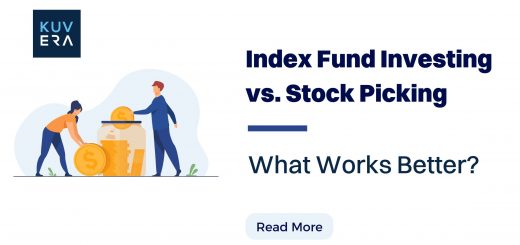An exchange-traded fund (ETF) is a popular investment security that functions similarly to a mutual fund. ETFs typically track a specific index, sector, commodity, or other assets, but unlike mutual funds, ETFs can be bought and sold on a stock exchange in the same way a regular stock can. An ETF can be designed to track anything from a single commodity’s price to a large and diverse collection of securities.
Exchange Traded Funds (ETFs) are one of the most important and valuable products developed recently for individual investors. When used wisely, ETFs provide numerous advantages and are an excellent vehicle for achieving an investor’s investment objectives.
Types of ETFs
Investors can choose from various ETFs used for income generation, speculation, and price increases, as well as to hedge or partially offset risk in an investor’s portfolio. These are the types of ETFs that are currently available on the market.
Fixed Income ETFs: These funds are designed to expose virtually every type of bond available, including US Treasury bonds, corporate bonds, municipal bonds, international bonds, high-yield bonds, and others.
Index ETFs: These are funds designed to track a specific index, such as the S&P 500 or the NASDAQ.
Commodity ETFs: These are funds that are designed to track the price of a commodity, such as gold, oil, etc. Read more about gold ETF here.
Sector and industry ETFs: ETFs are created to provide exposure to a specific industry, such as oil, pharmaceuticals, or high technology.
Style ETFs: These are ETFs designed to track a specific investment style or market capitalisation focus, such as large-cap value or small-cap growth.
Inverse ETFs: These funds are designed to profit from a drop in the underlying market or index.
Foreign market ETFs: These are funds that are designed to track non-US markets, such as Japan’s Nikkei Index or Hong Kong’s Hang Seng Index.
Leveraged ETFs: These funds are created to use leverage to boost returns.
Actively managed ETFs: Unlike most ETFs designed to track an index, these are designed to outperform it.
Exchange-traded notes (ETNs): ETNs are debt securities backed by the creditworthiness of the issuing bank that was created to provide access to illiquid markets; they also have the added benefit of generating virtually no short-term capital gains taxes.
Alternative investment ETFs: These are examples of alternative investment ETFs that allow investors to trade volatility or gain exposure to a specific investment strategy, such as currency carry or covered call writing.
How Exchange-Traded Fund (ETF) work
When the stock exchanges are open, an ETF is bought and sold just like company stock during the day. An ETF, like a stock, has a stock symbol, and volatility price data is easily obtained during the trading day.
Unlike a company stock, the number of shares outstanding of an ETF can change daily due to the continuous creation of new shares and redemption of existing shares. The ability of an ETF to continuously issue and redeem shares keeps the market price of exchange-traded funds in India (ETF) in line with the underlying securities.
Although the ETF is planned for individual investors, institutional investors play an important role in ensuring the ETF’s liquidity and tracking integrity by purchasing and selling creation units, which are large blocks of ETF funds that can be exchanged for baskets of the underlying securities.
Benefits of ETF
Easy to trade: Unlike most mutual funds, which trade at the end of the day, you can buy and sell anytime.
Transparency: The majority of ETFs are required to publish their holdings daily.
Trading transactions: Because they are traded like stocks, investors can place various order types (for eg, limit orders or stop-loss orders) that mutual funds cannot.
More tax efficient: ETFs typically generate lower capital gain distributions than actively managed mutual funds.
Key Takeaways
An exchange-traded fund (ETF) is a collection of securities that trade on a stock exchange the same way that stock does. ETF share prices fluctuate throughout the day as the ETF is bought and sold, as opposed to mutual funds, which only trade once a day after the market closes. ETFs can hold various investments, such as stocks, commodities, or bonds; some are limited to the United States, while others are global. ETFs have lower expense ratios and lower broker commissions than individual stocks.
Watch the YouTube video above by ICICIPrudentialAMC to understand the significance of ETF, the types of ETF, how to buy ETFs, the advantages of ETF, and much more
Interested in how we think about the markets?
Read more: Zen And The Art Of Investing
Watch here: How to invest during a bear market?
Start investing through a platform that brings goal planning and investing to your fingertips. Visit kuvera.in to discover Direct Plans and Fixed Deposits and start investing today. #MutualFundSahiHai #KuveraSabseSahiHai











